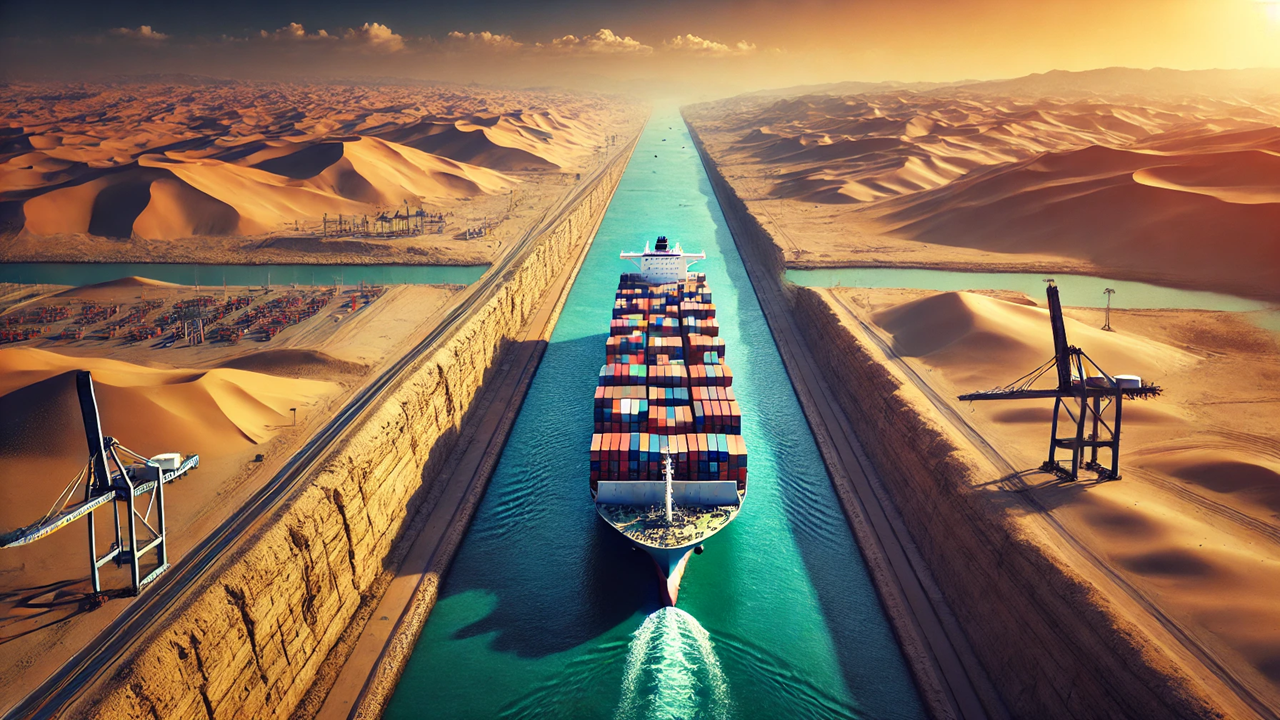Navigating Rough Waters: Maritime Trade Faces Chokepoint Challenges and Environmental Pressures
The Review of Maritime Transport 2024 by UNCTAD outlines the pressing challenges faced by the global maritime sector, focusing on the disruptions at critical chokepoints like the Suez and Panama Canals. The report highlights the economic and environmental impacts of rerouting vessels and underscores the urgent need for sustainable solutions. With growth projected in global trade, the maritime industry must invest in innovation, infrastructure, and international cooperation to ensure future stability.

Maritime Transport Under Pressure
The global maritime sector, the backbone of international trade, is facing significant challenges. According to the Review of Maritime Transport 2024 by UNCTAD, recent disruptions at key maritime chokepoints, coupled with environmental pressures, have shaken the industry. The Panama Canal, Red Sea, and Suez Canal, which together handle a significant portion of the world’s trade, are now increasingly vulnerable to disruptions from climate change, geopolitical tensions, and other operational challenges. These disruptions are not just increasing costs for shipping companies but also putting pressure on global supply chains, making the future of maritime transport uncertain.
The report forecasts moderate growth for the maritime sector, with trade volumes expected to rise by 2% in 2024, and an average annual growth of 2.4% from 2025 to 2029. While this growth is driven by bulk goods like iron ore, coal, and containerized trade, the potential for disruption remains high. Maritime chokepoints—critical passageways like the Suez Canal and Panama Canal—have become increasingly prone to congestion, climate-related impacts, and political instability.
A Web of Disruptions
In recent years, extreme weather, geopolitical conflicts, and infrastructure limitations have repeatedly exposed the vulnerabilities of the world’s key maritime routes. For instance, drought at the Panama Canal, resulting from climate change, has led to reduced water levels, significantly affecting the number of vessels able to transit the canal daily. This has caused delays, rerouting, and higher costs, forcing ships to take longer, more fuel-intensive routes around the Cape of Good Hope.
At the same time, the ongoing conflict in the Red Sea region has heightened security risks, pushing major shipping lines to divert their routes away from the Suez Canal. This detour not only adds more transit time but also drives up fuel consumption and emissions. The report points out that ships now take an additional 10 days when rerouting around the Cape of Good Hope, further escalating shipping costs.
The Review of Maritime Transport 2024 highlights that these disruptions have not only affected global supply chains but have also triggered environmental consequences. The longer distances and increased sailing speeds required to keep schedules have caused fuel consumption and carbon emissions to soar, making it harder for shipping companies to meet environmental regulations.
Environmental and Economic Costs
As the shipping industry works to reduce its carbon footprint, it faces the twin challenge of dealing with increased emissions and rising costs. The rerouting of vessels to avoid chokepoints has worsened the sector’s environmental performance. Shipping, which contributes approximately 3% of global greenhouse gas emissions, must now confront the reality that these rerouted journeys are leading to greater fuel consumption.
The shift to decarbonization is vital, as emphasized in the report. However, the path to sustainability comes with a hefty price tag. The report underlines the urgent need for new investments in cleaner technologies, alternative fuels, and infrastructure upgrades to avoid further disruptions. Decarbonization efforts are not just an environmental necessity but are also becoming a regulatory requirement. The European Union’s Emissions Trading System, extended to include the shipping industry in 2024, holds companies accountable for their emissions during voyages to and from the EU. Rerouting ships increases the distance and fuel consumption, adding to the financial burden on shipping lines.
For example, a container ship traveling from China to Europe through the Suez Canal might incur an additional $1 million in fuel costs due to the delays, but taking the longer route around Africa can push that cost up to $1.7 million. With higher insurance, wages, and fuel expenses, the shipping industry faces a financial strain that inevitably gets passed on to consumers.
Navigating Future Challenges
In light of these issues, the Review of Maritime Transport 2024 recommends several policy measures to enhance the resilience of maritime transport. These include diversifying supply chains to reduce dependence on vulnerable chokepoints and increasing investments in modern infrastructure. It also emphasizes the need for international cooperation in addressing both environmental concerns and geopolitical risks. By fostering collaboration and promoting sustainable practices, the maritime industry can mitigate the challenges posed by climate change and political instability.
Looking ahead, the maritime industry’s ability to navigate through these rough waters will depend on innovation and collective action. Global supply chains must become more adaptable, integrating technology and data to forecast and respond to disruptions. Digitalization and green investments are crucial, and without them, the sector risks further disruptions and a failure to meet international sustainability targets.
As global trade continues to grow, the resilience of maritime transport will be key to maintaining the stability of supply chains. The Review of Maritime Transport 2024 offers a clear message: the world cannot afford to ignore the vulnerabilities of its vital trade routes.
- FIRST PUBLISHED IN:
- Devdiscourse
ALSO READ
Global Temperatures Soar: Climate Change at a Critical Juncture
Wildfires Rage in Los Angeles: A Climate Change Crisis
US Delegation Engages with Chennai on Water Challenges and Climate Change
Unveiling the Hidden Costs: Climate Change and Health in Low-Income Nations
Climate Change's Toll: A Record $140 Billion in Insured Losses in 2024










